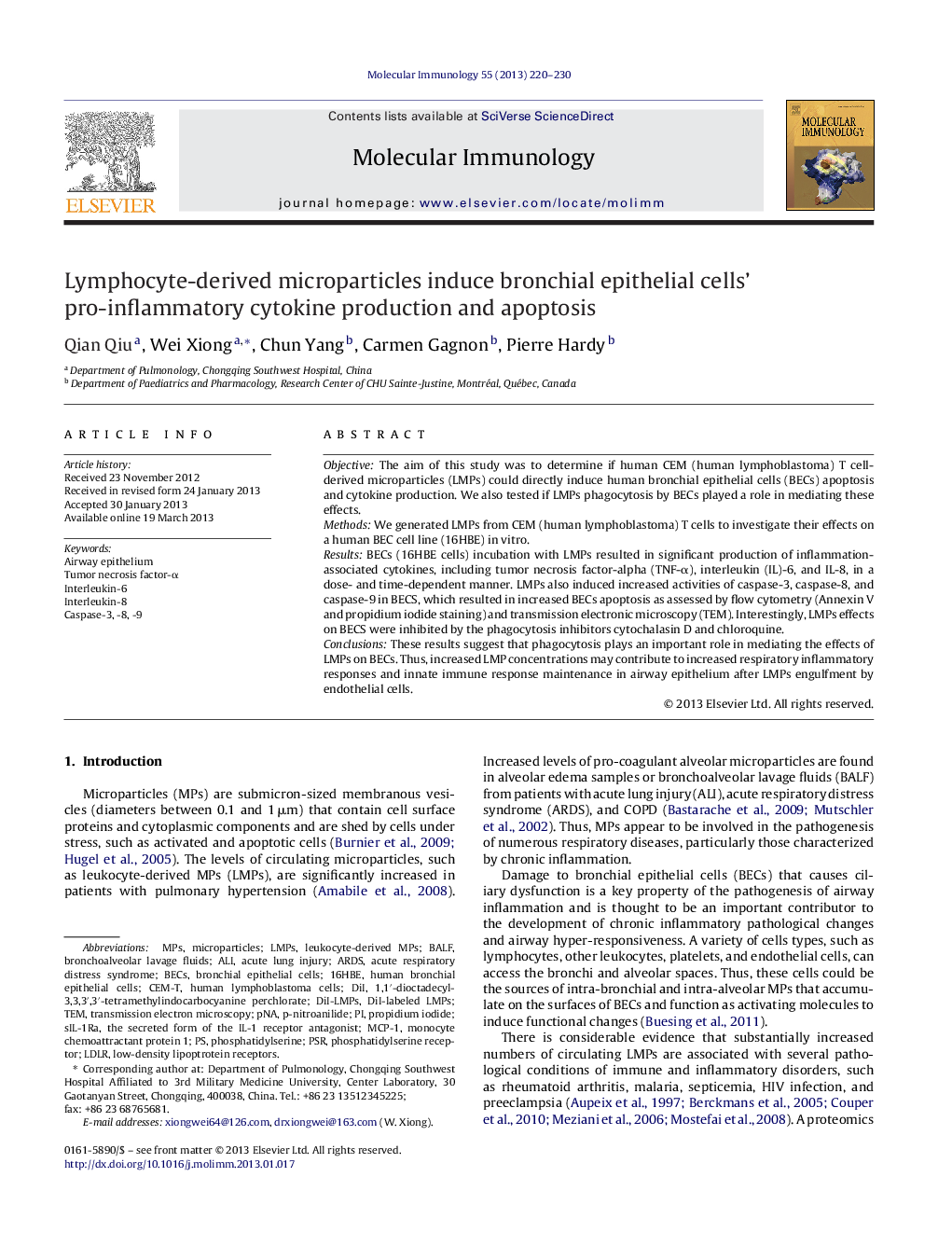| Article ID | Journal | Published Year | Pages | File Type |
|---|---|---|---|---|
| 2830867 | Molecular Immunology | 2013 | 11 Pages |
ObjectiveThe aim of this study was to determine if human CEM (human lymphoblastoma) T cell-derived microparticles (LMPs) could directly induce human bronchial epithelial cells (BECs) apoptosis and cytokine production. We also tested if LMPs phagocytosis by BECs played a role in mediating these effects.MethodsWe generated LMPs from CEM (human lymphoblastoma) T cells to investigate their effects on a human BEC cell line (16HBE) in vitro.ResultsBECs (16HBE cells) incubation with LMPs resulted in significant production of inflammation-associated cytokines, including tumor necrosis factor-alpha (TNF-α), interleukin (IL)-6, and IL-8, in a dose- and time-dependent manner. LMPs also induced increased activities of caspase-3, caspase-8, and caspase-9 in BECS, which resulted in increased BECs apoptosis as assessed by flow cytometry (Annexin V and propidium iodide staining) and transmission electronic microscopy (TEM). Interestingly, LMPs effects on BECS were inhibited by the phagocytosis inhibitors cytochalasin D and chloroquine.ConclusionsThese results suggest that phagocytosis plays an important role in mediating the effects of LMPs on BECs. Thus, increased LMP concentrations may contribute to increased respiratory inflammatory responses and innate immune response maintenance in airway epithelium after LMPs engulfment by endothelial cells.
► Incubation with LMPs increased production of inflammatory cytokines by BECs. ► LMPs increased caspase-3, -8, and -9 activities and apoptosis in BECs. ► Phagocytosis played an important role in mediating the effects of LMPs on BECs.
